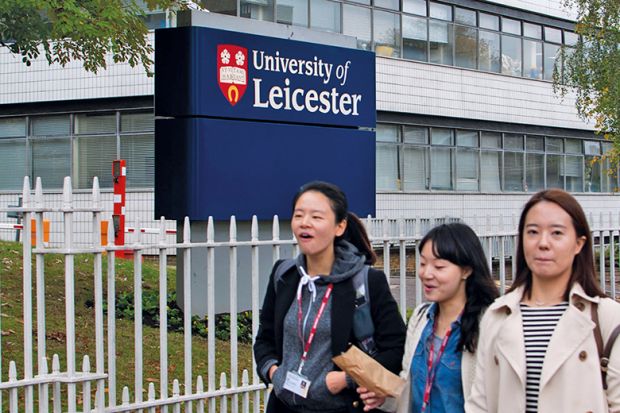Ensuring there is diversity among support staff in universities is just as essential as improving the representativeness of the academic workforce to helping students from different backgrounds succeed, according to a vice-chancellor.
Nishan Canagarajah, who took the helm at the University of Leicester this month, said that it might be difficult for students from an ethnic minority or poorer family “to feel they belong” if professional services staff were from different backgrounds to them.
The former pro vice-chancellor at the University of Bristol, who grew up in Sri Lanka before studying electronics to PhD level at the University of Cambridge, has pledged to close the gap at Leicester between black, Asian and minority ethnic (BAME) students and their white counterparts, in terms of those getting a first or a 2:1 at undergraduate level, by 2025.
It currently stands at about 10 percentage points at Leicester and 13 percentage points nationally, with the gap for black students across the country even higher at roughly 23 percentage points.
Professor Canagarajah said that a key element to eliminating the gap – which he wants to call the “awarding gap” rather than “attainment gap” to shift the onus for change on to universities – was the diversity of the staff body, but not just among academics.
Latest data from the Higher Education Statistic Agency show that BAME staff made up about 16 per cent of the total academic workforce in the UK in 2017-18, but just 12 per cent of support staff. Just 2 per cent of academics and support staff in professional occupations were black.
Meanwhile, almost a quarter of all British students are from a BAME background, with Leicester having one of the most diverse campus populations with about 40 per cent being BAME.
Professor Canagarajah, Leicester’s first BAME vice-chancellor, said that although the number of ethnic minority academics was still “very low across the sector”, students also “regularly have contact with professional services” such as the “student well-being office, in finance, in libraries, in mental health support”.
“Again if you look at the distribution of staff [across the country] it is predominantly white. So one of the priorities for me is to make sure that we have the workforce that is diverse and representative of our student body,” he said.
Professor Canagarajah added that exactly the same principle should apply for other forms of inequality, such as socio-economic background, too.
“If, again, we have staff who come from an affluent background and certain types of school and institution and their experience is very similar to students coming from that background then…the students from a widening participation background don’t quite feel that they belong,” Professor Canagarajah said.
Professor Canagarajah, who spent more than 25 years at Bristol and led on equality and diversity issues while pro vice-chancellor for research, said that although there were still only a handful of BAME vice-chancellors in the UK – according to Hesa there were just 10 in 2017-18 – he still thought it was “incumbent” on people like him to push for change.
“Although in some ways it might seem perverse that we are always relying on a few people to take on the leadership for these important issues…if we don’t do it we shouldn’t expect others to pick it up for us, so I feel it is very much my responsibility,” said Professor Canagarajah.
Register to continue
Why register?
- Registration is free and only takes a moment
- Once registered, you can read 3 articles a month
- Sign up for our newsletter
Subscribe
Or subscribe for unlimited access to:
- Unlimited access to news, views, insights & reviews
- Digital editions
- Digital access to THE’s university and college rankings analysis
Already registered or a current subscriber? Login









